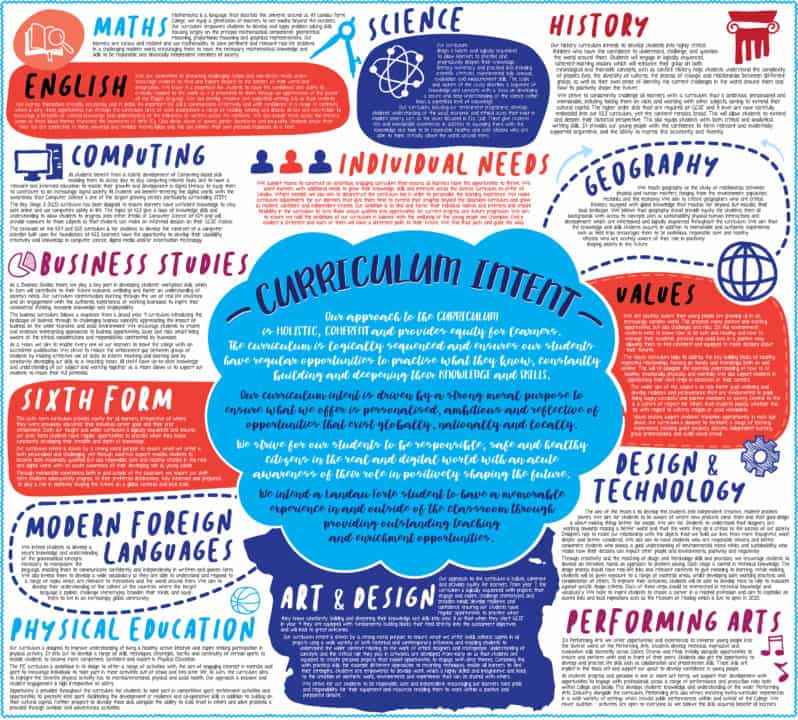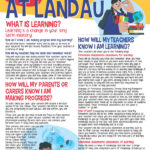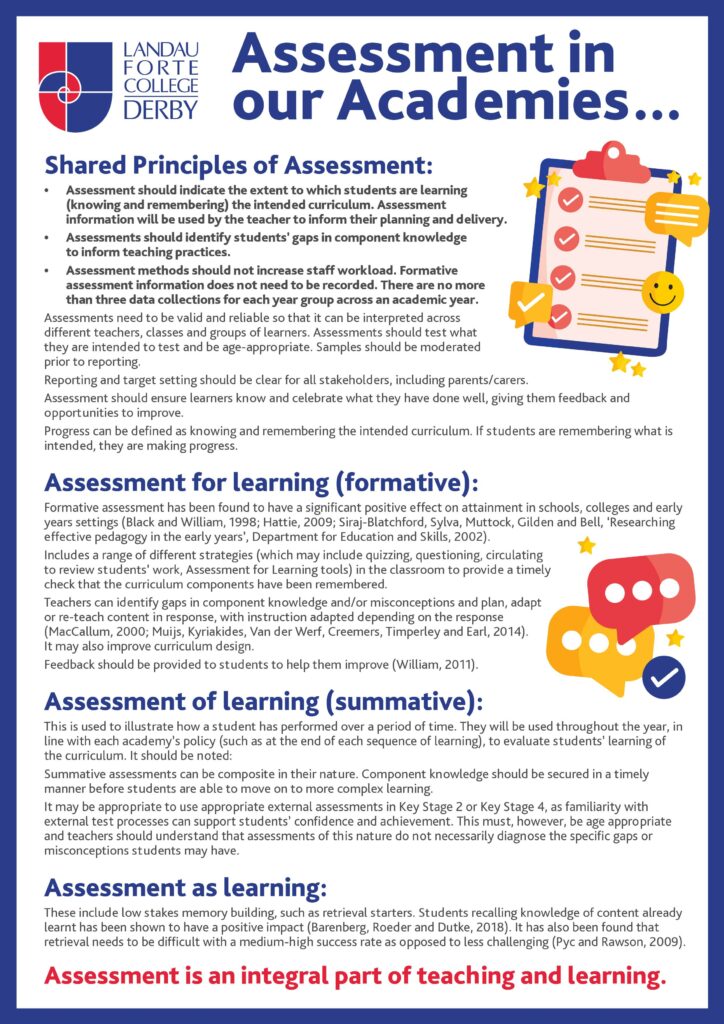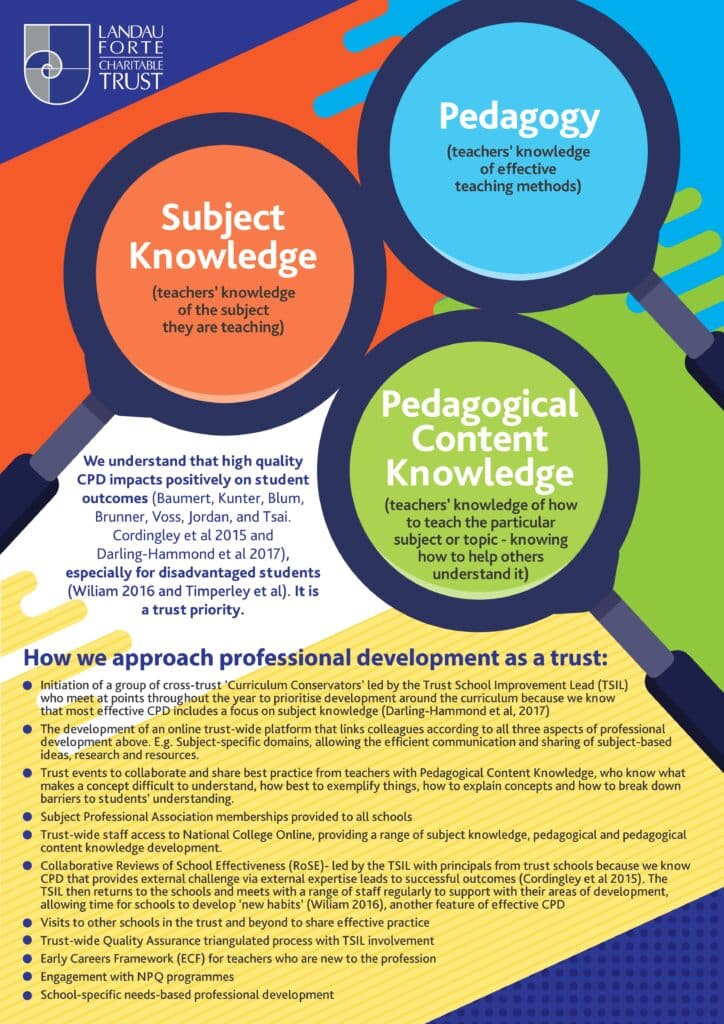Curriculum Intent
Our approach to the curriculum is holistic, coherent and provides equity for learners. The curriculum is logically sequenced and ensures our students have regular opportunities to practice what they know, constantly building and deepening their knowledge and skills.
Our curriculum intent is driven by a strong moral purpose to ensure what we offer is personalised, ambitious and reflective of opportunities that exist globally, nationally and locally.
We strive for our students to be responsible, safe and healthy citizens in the real and digital world with an acute awareness of their role in positively shaping the future.
We intend a Landau Forte College Derby student to have a memorable experience in and outside of the classroom through providing outstanding teaching and enrichment opportunities.
For more information on the Curriculum and the Equality Act 2010 please see the document below.
Click here for information about the extra-curricular and enrichment activities the College offers.
How do we help students remember the important knowledge and skills they are taught?
Important Knowledge
Teachers and leaders ensure curriculum content choices are appropriate. We follow the National Curriculum, breaking this down and sequencing it in a way that allows students to learn new content. Teachers use a ‘curriculum compendium’ so they can see where knowledge and skills are taught in other subjects in the curriculum so they can build on that at an appropriate time too. Teachers have access to their subject-based professional associations and meet regularly to ensure the subject content is expertly delivered and that students understand how specific subjects work. The Information Centre also has a range of journals and academic reading that teachers embed into the curriculum. We have students come to us from a large number of primary schools but we complete curriculum audits to help us build upon what students already know when they join us in Year 7.
Knowledge Retrieval
All curriculum areas have a retrieval starter or ‘Do Now’ activity at the start of each lesson to promote students’ recollection of key knowledge and preventing the likelihood of them forgetting. The short activity or questions will require them to pull from the knowledge base of previously taught content without looking back at the work or asking the teacher. Teachers then check the knowledge students have remembered and use this, along with formative assessment information, to inform their teaching and address students’ gaps in knowledge.
Spaced learning
Knowledge is repeated after certain intervals to minimise the possibility of students forgetting. This is done, in part, through the starters above and may take place through returning to earlier aspects of the curriculum in lessons and homework activities. Teachers use a ‘curriculum compendium’ so they can see where knowledge and skills are taught in other subjects in the curriculum so they can build on that at an appropriate time too.
Assessment
We understand that small parts of learning need to be checked so that teachers can intervene if students have gaps in knowledge or have misconceptions. It is important we don’t leave this until the end of a topic, as these gaps need to addressed in a timely way and in the lesson sequence so that students can go on to acquire new knowledge successfully. This is why our formative assessment strategies, such as frequent use of mini-whiteboards, questioning and Show My Homework quizzing is so important, as is ‘assessment as learning’, such as our ‘Do Now retrieval starters’. Using these strategies, teachers can identify the gaps in knowledge a student has and intervene as appropriate. Students also have ‘teacher sticker-marked’ summative assessments, testing their knowledge over time (these may be in the form of a trial examination paper or Viva for Years 11 and 13 only). These occur twice per academic year, in line with the reporting cycle and this information is shared with parents. Parents also have access to Show My Homework to check ongoing feedback.
Please see the subject-based curriculum overviews for more information about what students learn and when.
Remote Learning
Show My Homework is the platform for students to receive information and resources to support their homework and remote education where appropriate. If you have any questions regarding this, please make contact with us.
More information
If you would like more information about the curriculum the College follows then please contact us.




